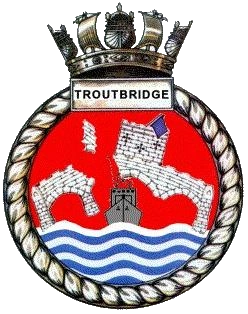David Dunhill was a BBC radio broadcaster who announced the demise of the Home Service and taught newsreaders to find their true voices
Dunhill came to fame in the 1950s as a BBC radio announcer. His career with the BBC in various roles spanned almost five decades. In his final role — as a freelance teacher and trainer for local radio stations — he taught and influenced many fledgeling radio and TV presenters at the start of their careers, including Libby Purves, Jill Dando and Jon Snow. He was also a longstanding campaigner for gay and bisexual rights.
David Penrose Dunhill was born on March 1, 1917. His father, Thomas Dunhill, was a composer, a contemporary of Hubert Parry and John Ireland, and brother of Alfred Dunhill, who founded the Dunhill tobacco firm. His mother, Molly Arnold, was the great-granddaughter of Dr Arnold, of Rugby, and great-niece of the poet Matthew Arnold. David was brought up largely by nannies and educated at Mowden Preparatory School in Brighton and Wellington College. His childhood, though generally happy, was overshadowed by his mother’s illness and eventual death from TB when he was 12.
In 1967 it fell to Dunhill to close down the Home Service and introduce listeners to the new Radio 4 the next morning. In his typical, slightly sentimental style, he marked the changeover thus: “This is the end of the Home Service for today and for all days. We’re like a bride on the eve of her wedding. We go on being the same person, we hope. But we’ll never again have the same name. Tomorrow, at 6.35am, we become Radio 4. So, goodbye Home Service, two of the best words in the British language. And still, I’m sure, the only answer you can give to the question: ‘What is radio for?’ — two words we shan’t erase. Good night.”
A good dozen years before normal retirement age Dunhill went freelance and found the role he loved most and which yielded his most enduring contribution to broadcasting: he taught TV and radio newsreaders, reporters and presenters to speak naturally and effectively. He travelled the country working with hundreds of broadcasters, coaching and cajoling them to sound interesting (and interested) and like themselves rather than using their idea of a radio or television “voice”.
Dunhill’s 60-year marriage to Barbara Wilkins was a loving but unusual relationship which allowed David to express his bisexuality while remaining a committed husband and father to their four children. In the 1970s he and Barbara took part in a discussion on the BBC Panorama programme about how it was possible for a gay man and his straight wife to live happily and openly in what could in all other respects be described as a “conventional” marriage.
Dunhill was an active member of the Gay Christian Movement and worked to support other gays, lesbians and bisexuals throughout his life. Though prone to bouts of depression, he was a witty and sociable man with an immense fund of jokes and stories. He liked walking, especially on Dartmoor where he lived for many years, often reciting poetry as he went.
His passion was words, spoken and written. He was an incessant writer of poems and letters and also turned his hand to scripts for plays, pageants (notably at Guildford in 1959) and sons-et-lumières at various cathedrals. Towards the end of the 1990s he published a biography of his father, Thomas Dunhill: Maker of Music, and produced a collection of verse, Good-Bi Songs.
He died on March 20, 2005, aged 88.[1]
Notes[]
- ↑ All Series 8 episodes except The PM Papa, which was announced by Ronald Fletcher
